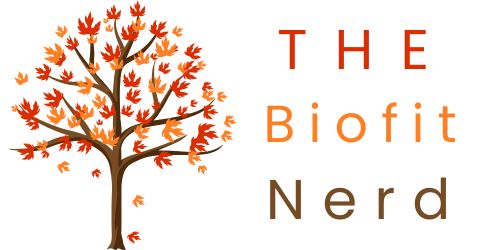Today we’re looking into the benefits of making some healthy changes to our diet. Maybe you’ve heard about the benefits of organic foods, but you’re not quite sure what it all means. Fear not, my friend! In this blog post, we’ll dive into the world of organic foods and explore the many surprising benefits of a mostly organic diet.
So, what exactly are organic foods? Simply put, organic foods are those that are grown and produced without the use of synthetic pesticides, fertilizers, or genetically modified organisms (GMOs). This means that organic farmers use natural methods to cultivate their crops and raise their livestock, with a focus on sustainability and environmental stewardship.
The history of organic farming dates back thousands of years, to a time when farmers relied on natural methods to grow their crops and raise their animals. However, it wasn’t until the 20th century that the modern organic farming movement began to take shape, with pioneers like J.I. Rodale advocating for the benefits of organic agriculture. Today, organic farming is a thriving industry, with millions of people around the world choosing to support organic foods for their health, environmental, and ethical benefits.
So, whether you’re a seasoned organic foodie or just starting to dip your toes into the world of sustainable eating, this blog post is for you. Let’s explore the many advantages of a mostly organic diet and discover why going organic might just be the best decision you ever make for your health and the planet!
- The Advantages of a Mostly Organic Diet
- Organic vs Non-Organic Foods
- Choosing Organic Foods
- Tips for Incorporating Organic Foods into Your Diet
- Myths and Misconceptions about Organic Foods
- Organic Food and Health
- Organic Farming in Developing Countries
- Challenges Facing Organic Farming
- Conclusion and final thoughts 💭
The Advantages of a Mostly Organic Diet
Now that we understand what organic foods are and their history, let’s explore the advantages of incorporating mostly organic foods into our diet. Trust me, there are more benefits than just feeling like a trendy hipster at the farmer’s market!
Higher Nutritional Value: Studies have shown that organic foods often have higher levels of vitamins, minerals, and antioxidants than their non-organic counterparts. This is because organic farming practices focus on soil health and the use of natural fertilizers, which can lead to more nutrient-dense crops. So, by choosing organic, you’re not only eating delicious food, but you’re also giving your body the nourishment it needs to thrive.
Reduction in Chemical Exposure: One of the biggest advantages of organic foods is that they are grown without synthetic pesticides and fertilizers, which can be harmful to both the environment and our health. By choosing mostly organic foods, you can reduce your exposure to these potentially harmful chemicals and enjoy a healthier, safer diet.
Support for Local Farmers: When you buy organic, you’re not only supporting sustainable farming practices, but you’re also supporting local farmers who are passionate about their craft. By choosing to buy from local organic farms, you can help keep small farmers in business and contribute to your community’s economy.
Positive Impact on the Environment: Organic farming practices prioritize sustainability and environmental stewardship, which can have a positive impact on the planet. Organic farms often use methods like crop rotation and natural pest control, which can help reduce soil erosion, conserve water, and protect wildlife habitats. By choosing mostly organic foods, you’re doing your part to support a healthier, more sustainable planet.
Key Takeaway. A mostly organic diet offers numerous advantages, including higher nutritional value, a reduction in chemical exposure, support for local farmers, and a positive impact on the environment. By choosing organic foods, you can enjoy a healthier, safer, and more sustainable diet while supporting your local community and the planet.
Organic vs Non-Organic Foods
Now that we’ve covered the advantages of organic foods, let’s dive deeper into the differences between organic and non-organic foods. Spoiler alert: there’s more to it than just the price tag!
Organic vs Non-Organic Foods: Organic foods are grown and produced without synthetic pesticides, fertilizers, or GMOs, while non-organic foods are typically grown using conventional methods that rely on chemical pesticides and fertilizers. Non-organic foods may also contain GMOs, which have been linked to a number of health and environmental concerns.
Differences in Nutritional Value: While there is some debate over whether organic foods are inherently more nutritious than non-organic foods, studies have shown that organic foods can have higher levels of certain vitamins, minerals, and antioxidants. Organic farming practices prioritize soil health and the use of natural fertilizers, which can lead to more nutrient-dense crops.
Pesticides and Chemicals in Non-Organic Foods: One of the biggest differences between organic and non-organic foods is the use of pesticides and chemicals. Non-organic foods may contain residues of these potentially harmful substances, which have been linked to a number of health problems. By choosing organic foods, you can reduce your exposure to these chemicals and enjoy a safer, healthier diet.
But wait, there’s more! Organic farming practices also prioritize sustainability and environmental stewardship, which can have a positive impact on the planet. By choosing organic foods, you’re not only taking care of your own health, but you’re also contributing to a healthier, more sustainable world.
Key Takeaway. Organic foods are grown and produced without synthetic pesticides, fertilizers, or GMOs, and may have higher levels of certain nutrients. Non-organic foods are typically grown using conventional methods that rely on chemical pesticides and fertilizers, and may contain residues of potentially harmful substances. By choosing organic foods, you can reduce your exposure to these chemicals and support a healthier, more sustainable food system.
Choosing Organic Foods
Now that we know the benefits of choosing organic foods, let’s talk about how to actually make it happen. Don’t worry, you don’t need to break the bank to eat organic!
Understanding Food Labels: When shopping for organic foods, it’s important to understand what the labels mean. Look for the USDA Organic label, which indicates that the food has been certified organic and meets certain standards. You may also see labels like “made with organic ingredients” or “100% organic,” which have different requirements.
The Dirty Dozen and Clean Fifteen: The Environmental Working Group (EWG) publishes a list of the “Dirty Dozen” and “Clean Fifteen” each year. The Dirty Dozen are the fruits and vegetables that have the highest levels of pesticide residue, while the Clean Fifteen are the ones with the lowest. When shopping for organic foods, it can be helpful to focus on buying organic versions of the Dirty Dozen, while choosing non-organic options for the Clean Fifteen.
Finding Affordable Organic Foods: While organic foods can be more expensive than non-organic options, there are ways to make it more affordable. Look for sales and coupons at your local grocery store, shop at farmer’s markets or co-ops, and consider joining a Community Supported Agriculture (CSA) program, where you can get fresh, locally-grown organic produce delivered to your doorstep.
Key Takeaway. Choosing organic foods doesn’t have to be overwhelming or expensive. By understanding food labels, focusing on the Dirty Dozen, and finding affordable options, you can make it a part of your healthy lifestyle. Plus, by supporting sustainable farming practices and local farmers, you’re doing your part to create a healthier, more sustainable food system for everyone.
Tips for Incorporating Organic Foods into Your Diet
Incorporating organic foods into your diet can be a bit of a learning curve, but with a few tips, it can be a seamless transition.
Starting Small: It can be overwhelming to switch your entire diet to all organic foods at once. Start by incorporating one or two organic items into your meals, like switching to organic milk or buying organic eggs. From there, you can gradually add more organic options to your diet.
Eating Seasonally: Eating organic foods that are in season not only tastes better, but it can also be more affordable. In-season produce is often more readily available and can be found at a lower cost.
Cooking at Home: Cooking your own meals is a great way to control the quality of the ingredients you use. When you cook at home, you can choose organic ingredients and have more control over the preparation and cooking methods.
Key Takeaway. Incorporating organic foods into your diet can be a gradual process. Start small, focus on eating seasonally, and cook at home to control the quality of your ingredients. By taking these steps, you can improve the quality of your diet and reap the many benefits of choosing organic foods.
Myths and Misconceptions about Organic Foods
Despite the many benefits of organic foods, there are still some common myths and misconceptions that can make people hesitant to make the switch.
Organic Foods are too Expensive: While it’s true that organic foods can sometimes be more expensive than non-organic options, there are ways to make it more affordable (as we discussed earlier!). Plus, the higher cost of organic foods is often reflective of the true cost of sustainable farming practices and fair wages for farmers.
Organic Foods Don’t Taste as Good: This is a common misconception that couldn’t be further from the truth! Organic foods are often grown with more care and attention to their quality, which can lead to better flavor and texture. Plus, when you know that your food has been grown without harmful chemicals, it can be more enjoyable to eat.
Organic Foods Don’t Last as Long: Some people believe that organic foods spoil more quickly than non-organic options, but this isn’t necessarily true. Organic produce can last just as long as non-organic produce when stored properly. In fact, organic foods are often fresher than non-organic options because they are grown locally and have a shorter journey from farm to table.
Key Takeaway. Don’t let myths and misconceptions hold you back from enjoying the benefits of organic foods. While they may be more expensive at times, they often taste better and can last just as long as non-organic options. Plus, by choosing organic foods, you’re supporting sustainable farming practices and doing your part to create a healthier, more sustainable food system.
Organic Food and Health
Organic foods not only have environmental benefits but can also have significant impacts on our health.
Organic Foods and Cancer Prevention: Research suggests that organic foods may have a lower risk of contamination by carcinogenic chemicals. Choosing organic foods, especially fruits and vegetables, may help reduce exposure to harmful chemicals and contribute to a lower risk of cancer.
Organic Foods and Weight Management: Eating a mostly organic diet can be beneficial for weight management. Organic foods tend to be lower in calories and higher in nutrients, making them a great option for those looking to maintain a healthy weight.
Organic Foods and Heart Health: Choosing organic foods can also have positive impacts on heart health. Research has shown that organic foods may have higher levels of heart-healthy nutrients like omega-3 fatty acids. Plus, by avoiding harmful pesticides and chemicals, you can reduce your risk of heart disease.
Key Takeaway. Organic foods not only have environmental benefits but can also have significant impacts on our health. By choosing organic options, you can reduce your exposure to harmful chemicals, contribute to cancer prevention, maintain a healthy weight, and improve heart health. So, the next time you’re grocery shopping, consider choosing organic options to benefit both yourself and the environment.
Organic Farming in Developing Countries
The organic movement is growing around the world, and it’s not just limited to developed countries.
Organic Farming in Europe: Europe has been at the forefront of the organic movement, with many countries adopting strict regulations and certification processes for organic farming. Organic farming in Europe has also been supported by government subsidies and public awareness campaigns.
Organic Farming in the United States: The United States has also seen a significant growth in organic farming in recent years. However, the organic certification process is not as strict as in Europe, which has led to some controversy over what can be labeled as “organic.”
Organic Farming in Developing Countries: Organic farming is not just limited to developed countries. In fact, organic farming in developing countries has become increasingly popular as a way to promote sustainable agriculture and improve the livelihoods of small farmers. Many organizations and non-profits are working to support organic farming in developing countries by providing training and resources to farmers.
Key Takeaway. The organic movement is not just limited to certain countries or regions, but is growing around the world. Organic farming is being embraced as a way to promote sustainable agriculture, reduce environmental impact, and improve public health. By supporting organic farming, we can help create a more sustainable and healthier food system for everyone.
Challenges Facing Organic Farming
While organic farming has many benefits, there are also some challenges that farmers face.
Difficulty Meeting Demand: One of the biggest challenges facing organic farming is meeting the growing demand for organic products. As more consumers become aware of the benefits of organic foods, there is a need for more organic farmers to meet this demand. However, transitioning to organic farming can be difficult and time-consuming, and many farmers may not have the resources to make the switch.
Limited Availability: Organic foods may not be available in all areas or in all seasons. This can make it difficult for consumers who want to eat organic foods year-round or who live in areas where organic foods are not readily available.
High Cost of Organic Certification: Organic certification can be expensive for farmers, especially small-scale farmers. The cost of certification can be a barrier for some farmers who want to transition to organic farming but cannot afford the certification fees.
Key Takeaway. While there are challenges facing organic farming, it is still an important and sustainable way to produce food. By supporting organic farmers and increasing demand for organic products, we can help make organic foods more accessible and affordable for everyone. By doing so, we can create a more sustainable food system that benefits both the environment and our health.
Conclusion and final thoughts 💭
In conclusion, a mostly organic diet can offer a wide range of benefits, from better nutrition and reduced exposure to harmful chemicals to supporting local farmers and the environment. By choosing organic foods and incorporating them into our diets, we can make a positive impact on our health and the planet.
The future of organic farming looks promising, as more consumers are becoming aware of the benefits and demanding organic products. As organic farming continues to grow and evolve, we can expect to see more innovation and advancements in sustainable agriculture practices.
If you want to support organic farming and make a difference, there are many ways to get involved. By buying organic products, supporting local organic farmers, and advocating for sustainable agriculture policies, we can all help create a healthier and more sustainable food system.
Success. Eating a mostly organic diet can have many benefits for our health and the environment. By choosing organic foods and supporting organic farming, we can help create a more sustainable food system that benefits us all.



